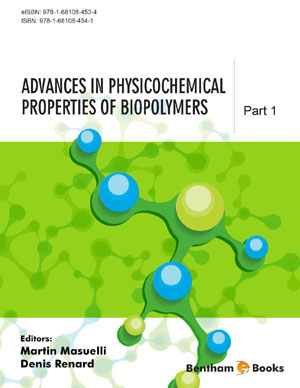Abstract
Bovine serum albumin (BSA) in aqueous solution is scarcely studied, and the Mark-Houwink parameters from the intrinsic viscosity measurements have not been reported at different temperatures. This work discusses these with a simple calculation of the Mark-Houwink parameters of BSA in aqueous solution when the concentration ranged from 0.2 to 1.0% wt., and the temperature ranged from 20 to 45°C. The relationship between the concentration and intrinsic viscosity was determined according to different methods. It is well known that when the temperature increases, the intrinsic viscosity decreases. This is reflected in the stiffer chain curve with d(ln[ɳ])/d(1/T) of -398.97 for A zone from 20-30ºC (gel zone), -2759.1 for B zone from 35-40ºC (active zone) and 5604.5 for C zone from 41-45ºC (denatured protein zone), the point of intersection between the zones A and B is 34.6ºC. The linear relation between the logarithmic of viscosity and reverse temperature is ΔEavf with a value of 680 Cal/mol. Furthermore, this work proposes the determination of M-H parameters of a protein-water system and their thermodynamic implications in conformational changes.
Keywords: BSA, Intrinsic viscosity, Mark-Houwink parameters.






















